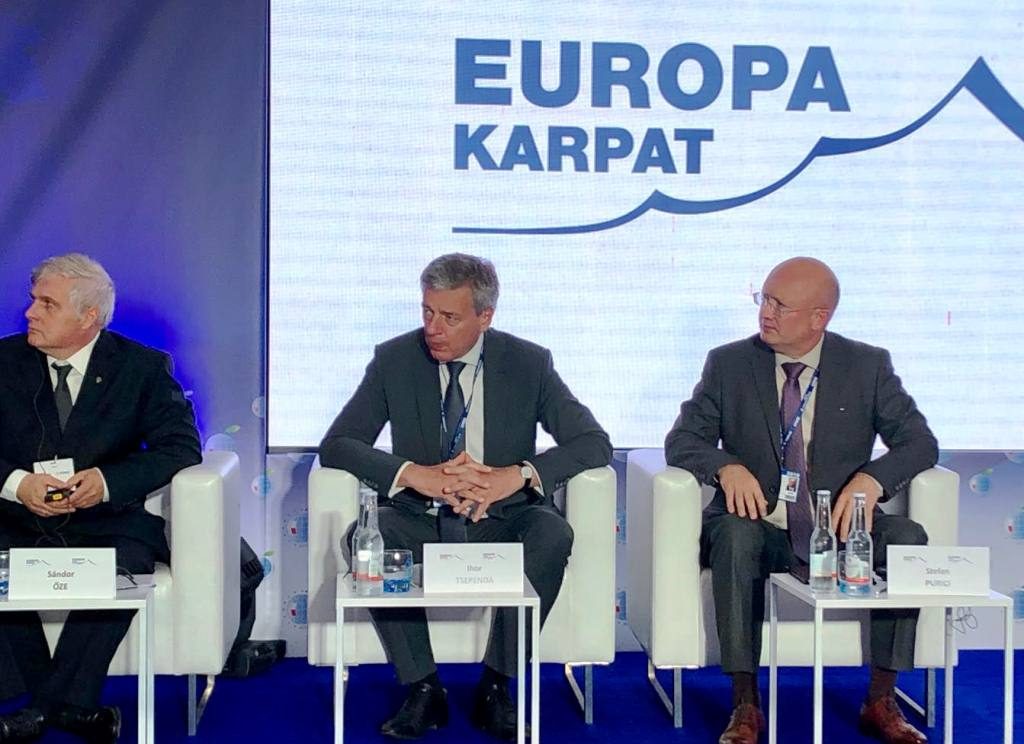
Universities are still the only institutions which can cover the issues of the Carpathian region that concern the society of our country comprehensively and deeply. These issues range from the linguistic to environmental ones. This has been stated today by the rector of Vasyl Stefanyk Precarpathian National University during the discussion “Collegium Carpathicum: what do universities do for the Carpathian region?” in the context of XXIX Economic Forum in Krynica-Zdrój.
At this panel meeting, the university rectors who belong to the Collegium Carpathicum discussed the urgent challenges and prospects of cooperation. It should be recalled that the Collegium Carpathicum consortium includes seven institutions of higher education in Europe such as Vasyl Stefanyk Precarpathian National University (Ukraine), the University of Warsaw (Poland), the University of Ostrava (Czech Republic), Pázmány Péter Catholic University (Hungary), the East European State Higher School in Przemysl (Poland), the University of Prešov (Slovakia) and the Ștefan cel Mare University of Suceava (Romania). The headquarters of the consortium is the International Scientific Center “Observatory” on Mount Pip Ivan.
So on September 4, the rectors summarized the results of the work which had been carried out thanks to two grants. They talked about the successful exchange of scholars who attended partner universities and lectured on the Euro-Carpathian region in the broad sense of the term. Universities are now moving on to the second stage, i.e. research. Joint scientific groups are to be set up for this purpose.
“I consider the work of the consortium to be useful and successful because it is a unique platform that unites scientists of the Carpathian region and provides an opportunity to solve the problems that exist in the region jointly,” said Ihor Tsependa. “We are directing attention of the European Union, which was previously solely focused on the Alpine Space, to the issues of the Carpathian mountains, which are no less important to contemporary Europe.” The panel moderator and the director of the Studios of Eastern Europe of the University of Warsaw, Jan Malitskyy, summarizing the conversation, noted that actually the universities today provide certain ideas, strategies and plans for development, which should be implemented by public or private institutions of the Carpathian region.





